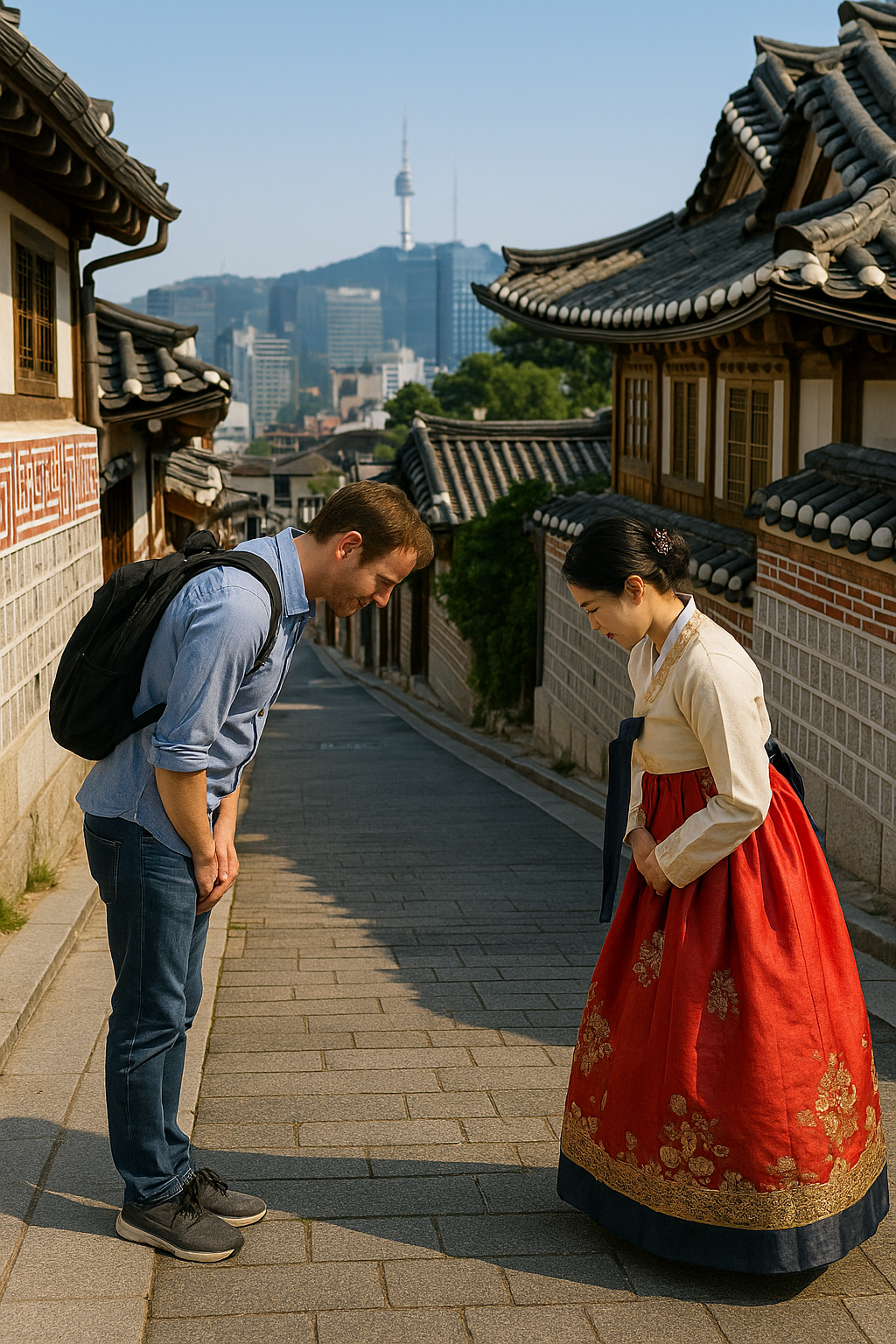Essential Behaviors to Respect Korean Norms in 2025
Introduction
Korea is a country that beautifully blends ancient traditions with modern innovation. For foreigners visiting or moving to Korea, understanding basic cultural etiquette is not only a sign of respect, but also a way to build meaningful connections with locals. From dining manners to social customs, being culturally aware will help you avoid awkward moments and make your experience more enriching.
Here are 5 essential etiquette tips every foreigner should know before stepping into Korean society in 2025.
Respect the Hierarchy: Age and Titles Matter
Korean culture is deeply rooted in Confucian values, where age and social hierarchy play a significant role. You should always address people by their proper titles — such as “sunbae” for seniors or “teacher” (선생님) in formal situations. When in doubt, it’s better to be overly formal than casual.
Key Practices:
- Use two hands when giving or receiving something from someone older.
- Bow slightly when greeting elders or superiors.
- Avoid calling someone by their first name unless invited to do so.
Dining Etiquette: Wait for the Eldest
Meals are an important part of Korean culture, and the dining table reflects social structure. Typically, people wait for the eldest person to start eating before anyone else does. Also, pouring drinks for others is a respected custom, especially when dining with older people.
Key Practices:
- Don’t stick chopsticks upright in your rice — it resembles funeral rites.
- Pour drinks for others and accept drinks with two hands.
- Avoid talking loudly or chewing with your mouth open.
Shoes Off Indoors
Taking off your shoes before entering a home is standard in Korea. Most Korean homes, and even some guesthouses or restaurants, have designated areas where shoes are removed. It’s considered rude to wear shoes indoors.
Key Practices:
- Look for the “no shoes” sign or notice shoes by the door.
- Wear clean socks — you never know when you’ll have to take off your shoes!
- Bring indoor slippers if you’re staying long-term.
Avoid Public Displays of Emotion or Affection
Korean culture leans toward modesty and subtlety in public spaces. Loud emotional displays or excessive affection — especially in conservative settings — are generally frowned upon. Respecting personal space is considered polite.
Key Practices:
- Keep your voice down in public transportation or elevators.
- Avoid public arguments or shouting.
- Physical affection like hugging or kissing in public should be minimal.
Be Mindful of Personal Space on Public Transport
Korean buses and subways are highly efficient but often crowded. Being considerate of others, especially the elderly, pregnant women, and disabled individuals, is expected. Reserved seats are strictly respected.
Key Practices:
- Don’t sit in priority seats unless you qualify.
- Remove your backpack and hold it in front of you.
- Avoid eating or talking loudly while commuting.
Conclusion: Respect Builds Connection
Learning cultural etiquette is not about perfection — it’s about intention and respect. Koreans appreciate when foreigners make an effort to understand and adapt to their customs.
Whether you’re a tourist, a student, or an expat, these 5 etiquette tips will help you navigate Korean society with confidence and grace. A little awareness goes a long way in showing that you’re not just visiting — you’re engaging.
